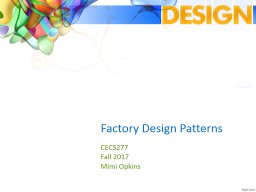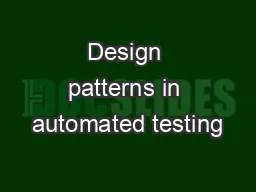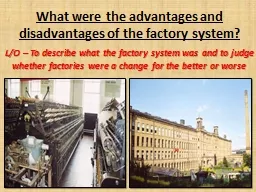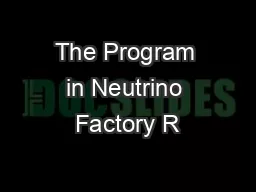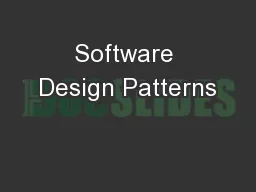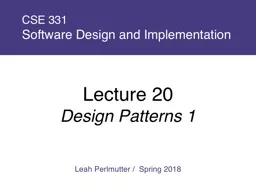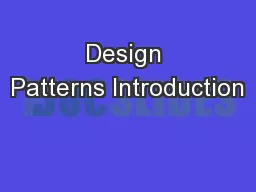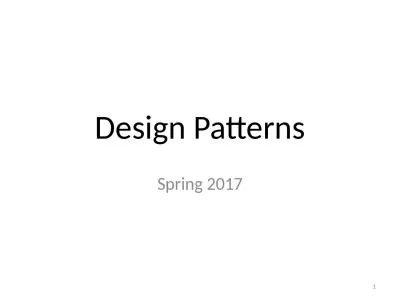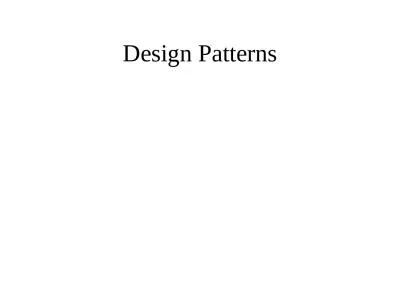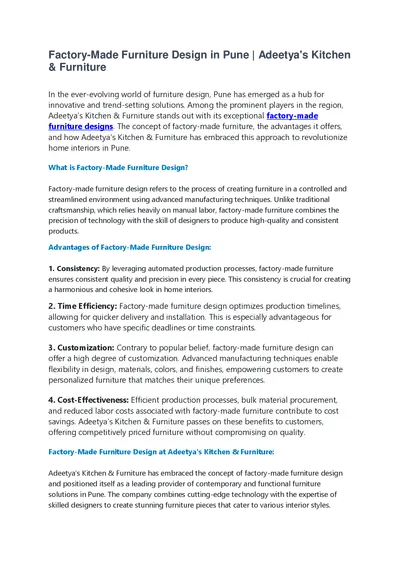PPT-Factory Design Patterns CECS277
Author : piper | Published Date : 2023-06-24
Fall 2017 Mimi Opkins Factory Pattern Word of the Day Factory Different Flavors Simple Factory Factory Method Abstract Factory 2 6262017 What Pattern should we
Presentation Embed Code
Download Presentation
Download Presentation The PPT/PDF document "Factory Design Patterns CECS277" is the property of its rightful owner. Permission is granted to download and print the materials on this website for personal, non-commercial use only, and to display it on your personal computer provided you do not modify the materials and that you retain all copyright notices contained in the materials. By downloading content from our website, you accept the terms of this agreement.
Factory Design Patterns CECS277: Transcript
Download Rules Of Document
"Factory Design Patterns CECS277"The content belongs to its owner. You may download and print it for personal use, without modification, and keep all copyright notices. By downloading, you agree to these terms.
Related Documents

